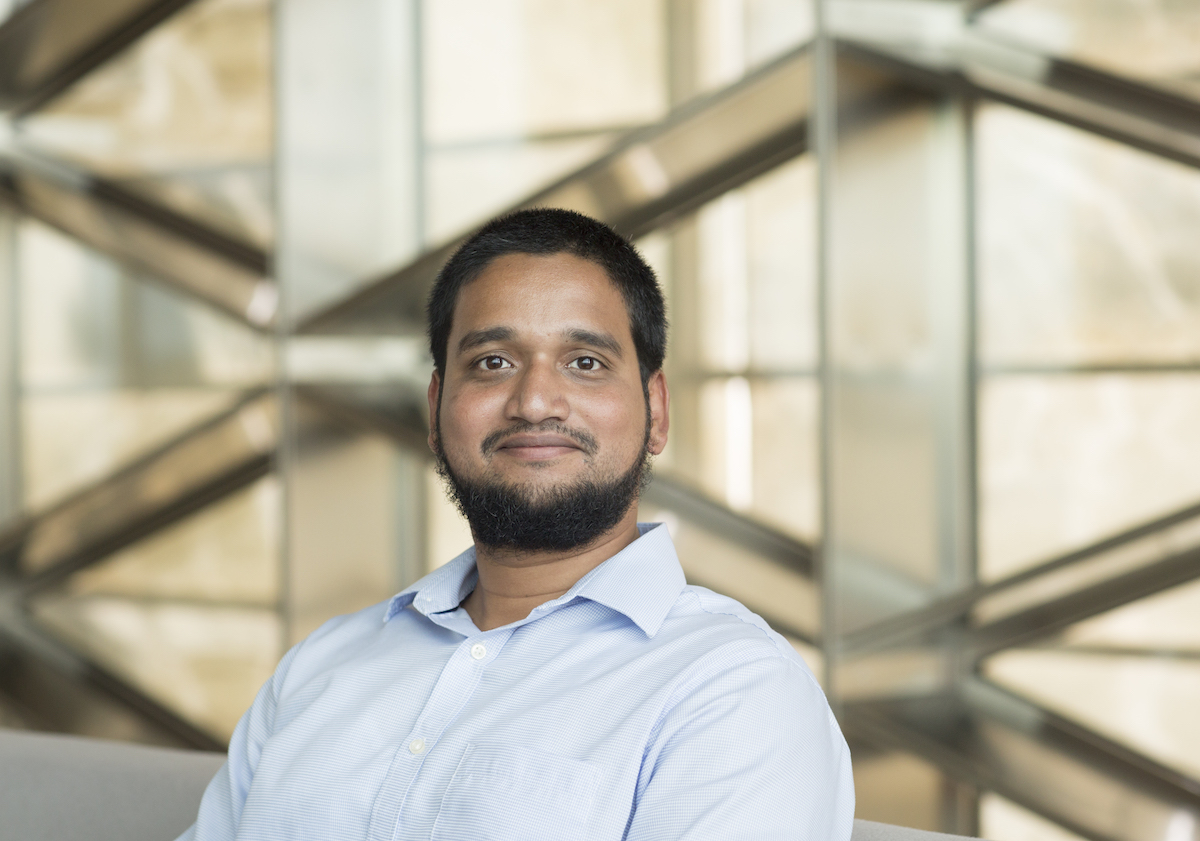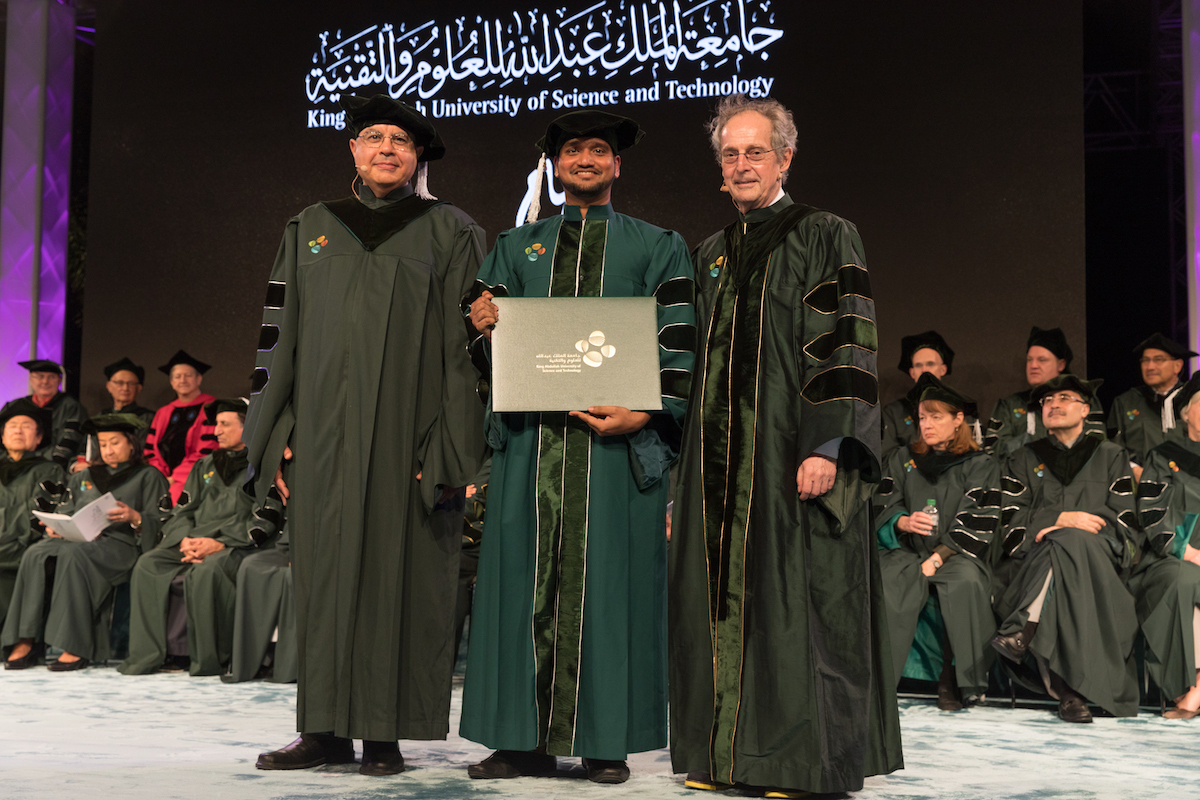Alumni Focus: Aftab Hussain

KAUST alumnus Aftab Hussain received both his master's degree and Ph.D. from the University. He now works as a faculty member at the International Institute of Information Technology in Hyderabad, India. Image courtesy of Aftab Hussain.
-By Tanya Petersen, KAUST News
KAUST alumnus Aftab Hussain, who is now an assistant professor at the International Institute of Information Technology in Hyderabad, India, believes wearable, truly high performance electronics will have a far reaching impact on humanity.
For almost 10 years at KAUST and then at Harvard and now in Hyderabad, Hussain has been working on overcoming a key challenge in realizing high performance wearable devices: the lack of flexibility of their key component—microprocessors and memory circuits.
"These circuits are based on rigid, inorganic substrates such as silicon, thus limiting their maneuverability," he said. "I have developed some very important baseline processes for obtaining highly stretchable metal spring structures using simple and low-cost materials [like] copper and polyimide that can be used in the future to fabricate various kinds of wearable, flexible and stretchable electronics devices. One of the applications of these devices is in thermotherapy. This application has already been published and patented, with many more still to come."
From Hussain's perspective, these kinds of research breakthroughs are overdue.
"The field of semiconductor manufacturing has been stagnant over the last 20 years, and the need for disruptive change in the way electronic circuits have been made over the past few decades—particularly for the upcoming wearables and micro-robotics industry—inspired me to take up this challenge," he noted.
After growing up in a small town in central India, Hussain earned his bachelor's degree from the prestigious Indian Institute of Technology in 2009 and then joined Analog Devices India as a design engineer. Eager to pursue more research, Hussain enrolled in the master's degree program at KAUST in 2011.
"Working with and learning from some of the best researchers from around the world inspired me to pursue a career in research," Hussain said. "As a first step, I continued at KAUST after receiving my master's [degree], completing a Ph.D. in December 2016."

KAUST alumnus Aftab Hussain is shown here receiving his Ph.D. from the University in December 2016. File photo.
"Getting to know the work culture and problem-solving techniques of individuals from different communities and backgrounds has helped me immensely. I cherished these team interactions the most and I am still able to attack a problem from different perspectives because of the experience I gained in such a diverse student community," he said.
In the future, Hussain hopes to further advance the processing and fabrication know-how he developed at KAUST and to come up with multiple applications for these processes.
"When realized to their full potential, body wearable electronic devices can truly change the way we work, communicate and socialize," noted Hussain.
Related stories:
- KAUST research scientist Dr. Muhammad Wakil Shahzad wins 'Best Oral Presentation' award
- KAUST postdoctoral fellow Elisabetta Fiacco wins topical best poster prize
- Student Focus: Mohammad Alabdullah
-
Postdoctoral Fellow Focus: Adrian Galilea

